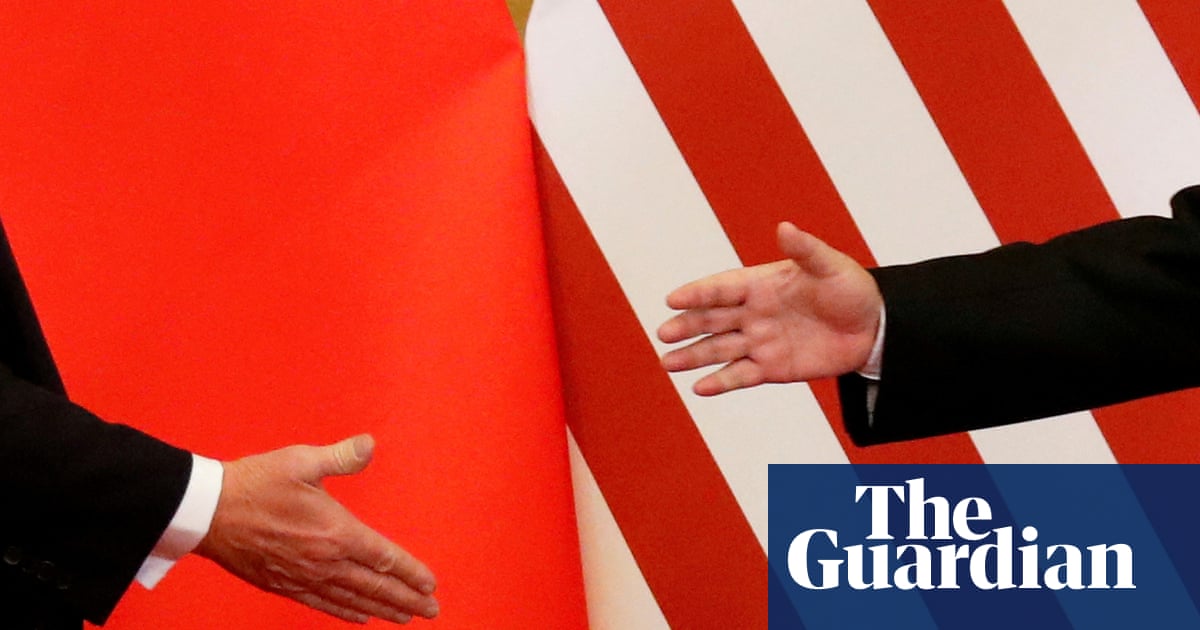
The US and China have agreed a framework for a trade deal just days before Donald Trump and Chinese president Xi Jinping are due to meet.
Treasury secretary Scott Bessent said the agreement, forged on the sidelines of the Association of south-east Asian Nations (Asean) summit in Malaysia on Sunday, would remove the threat of the imposition of 100% tariffs on Chinese imports starting on 1 November and include “a final deal” on the sale of TikTok in the US.
Trump arrived in Malaysia on Sunday for the summit, his first stop in a five-day Asia tour that is expected to culminate in a face-to-face with Xi in South Korea on Thursday.
After the talks, the US president struck a positive tone, saying: “I think we’re going to have a deal with China.”
Bessent said China said it would “delay” the export controls on minerals used in fighter jets, smartphones and electric vehicles for a year as part of the truce.
China’s top trade negotiator, Li Chenggang, said both sides had reached a “preliminary consensus” and will next go through their respective internal approval processes.
“The US position has been tough,” Li said. “We have experienced very intense consultations and engaged in constructive exchanges in exploring solutions and arrangements to address these concerns.”
There were also hopes of a truce between the US and Brazil after what President Luiz Inácio Lula da Silva described as a “positive” meeting with Trump in Malaysia. Their respective teams will start “immediately” to discuss tariffs and other matters, he said.
An agreement between the US and China reduces the chances of an all out global trade war that threatened car production across Europe and the UK.
It comes after months of escalated trade tensions between the two economic super-powers, triggered by Trump’s “liberation day” tariff announcement outside the White House in April.
With just days to go before their current tariff truce was due to end, Xi showed he had no intention of submitting to Trump’s threats of 100% tariffs.
Instead he turned the screws on the US, imposing controls on exports of rare earth minerals including magnets a critical element used for electronic window and boot openings in cars.
Trump accused Beijing, which controls 60% of global production and 90% of the refineries of rare earths, of “becoming very hostile” and trying to hold the world “captive”.
Beijing also hit the US agriculture sector hard, stopping buying soya beans from the US. China is the US’s biggest soya bean customer, importing half of all $24bn (£18bn) in exports in 2024.
“I think we have a very successful framework for the leaders to discuss on Thursday,” Bessent told reporters after he and US trade representative Jamieson Greer met Chinese vice-premier He Lifeng and Li for their fifth round of in-person discussions since May.
Bessent said he anticipates that a tariff truce with China will be extended beyond its 1 November expiry date, and that China will revive substantial purchases of US soya beans after buying none in September and instead sourcing the crop from Brazil and Argentina.
US soya bean farmers “will feel very good about what’s going on both for this season and the coming seasons for several years” once the deal’s terms are announced, Bessent told ABC.
Greer said both sides agreed to pause some punitive actions and found “a path forward where we can have more access to rare earths from China, we can try to balance out our trade deficit with sales from the United States.”
Tensions between Brazil and the United States have also escalated since August when Trump increased tariffs on imports of most Brazilian goods to 50% from 10% in August.
“We agreed that our teams will meet immediately to advance the search for solutions to the tariffs and sanctions against Brazilian authorities,” Lula said in a social media post after the meeting.
Trump had linked the tariff move to what he called a “witch-hunt” against Jair Bolsonaro, the South American country’s former president.
Source link

